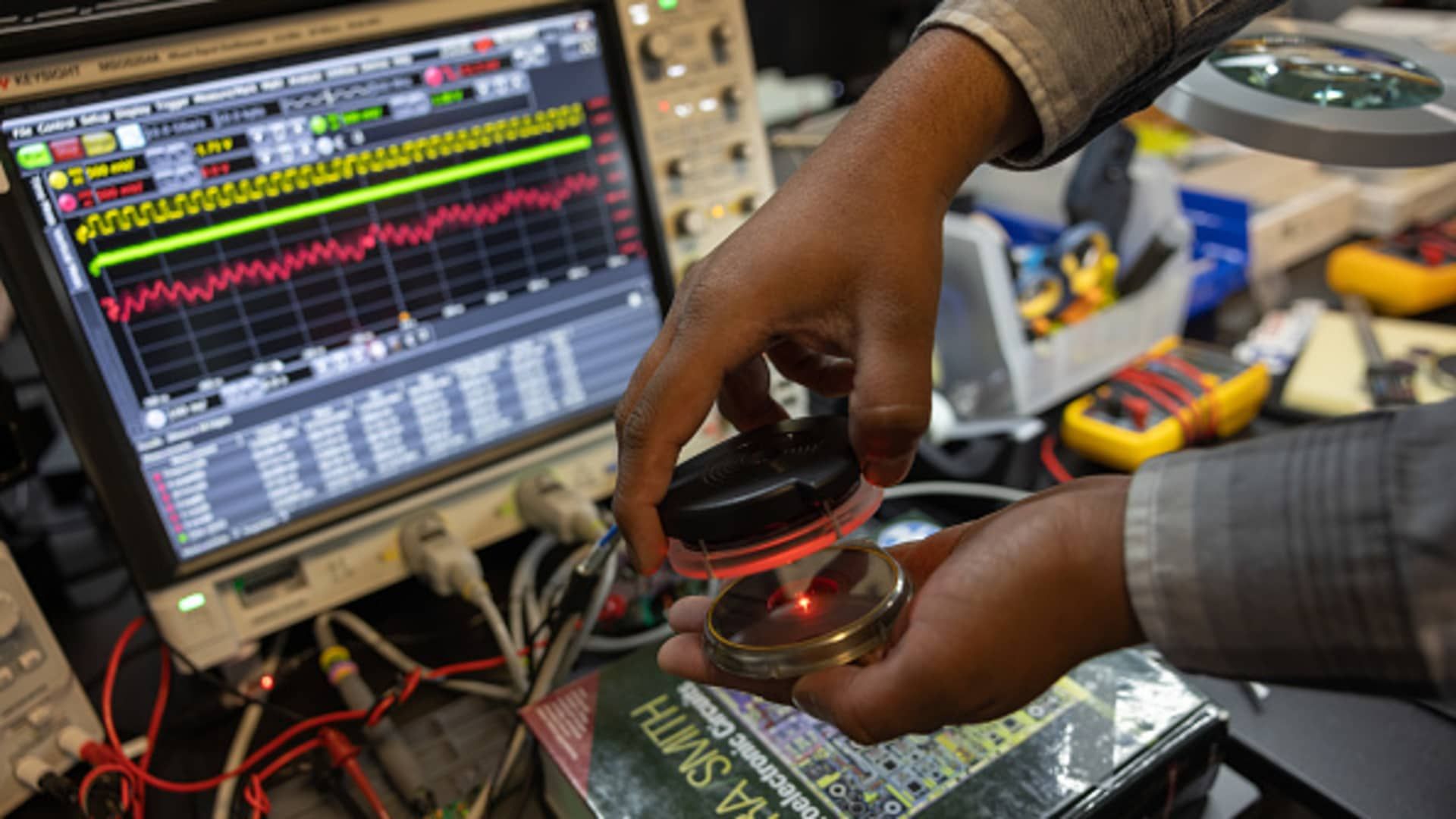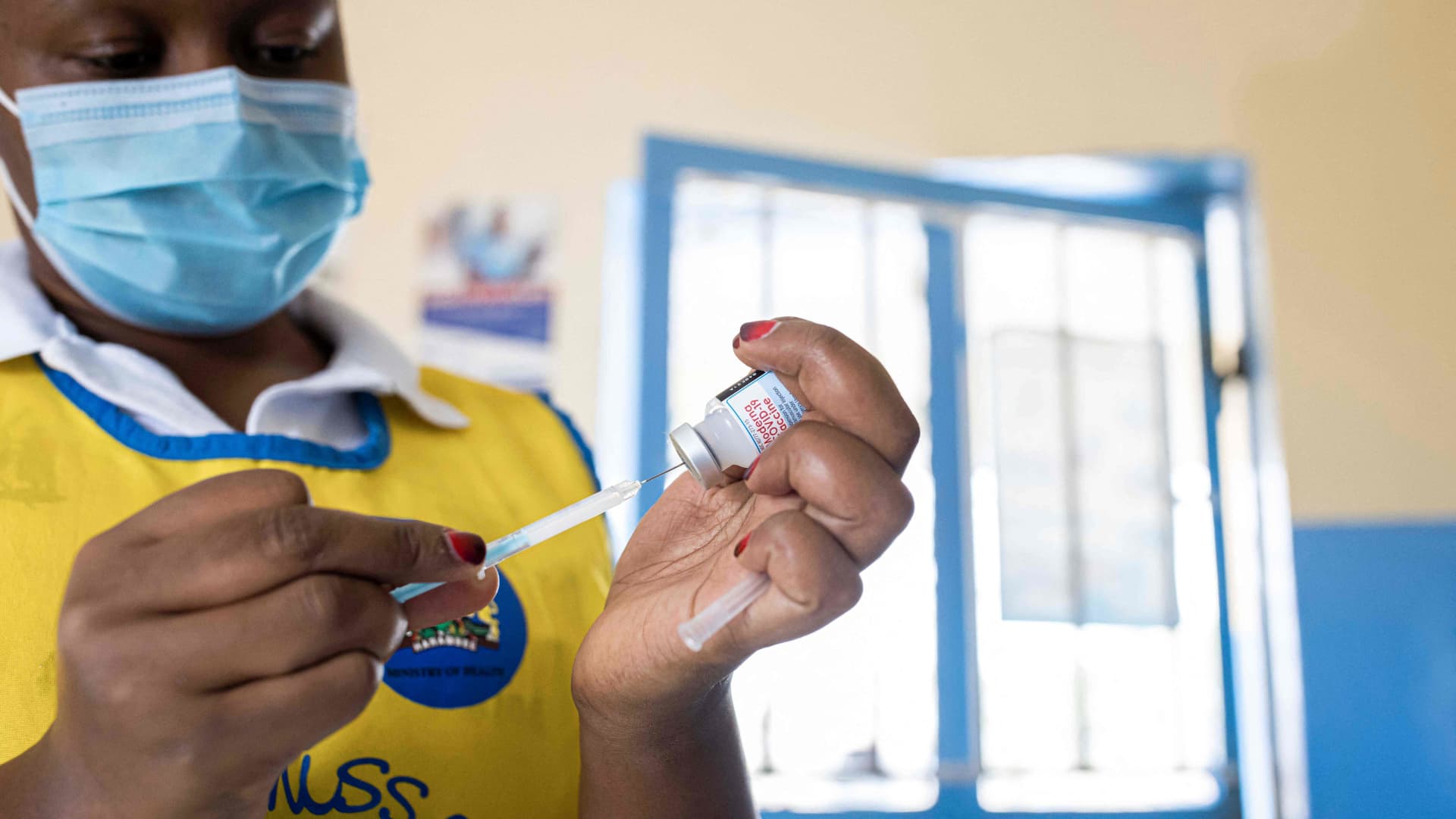Do you think a friend or colleague should receive this newsletter? this link with them to register.
Aamir Ahmed Khan, PhD, principal electrical engineer at Paradromics, is working on the transceiver that connects to brain implants. Austin-based Paradromics is developing a brain-computer interface to help disabled and nonverbal patients communicate.
Julia Robinson | The Washington Post | Getty Images
Good day!
This week of July 4th started with some announcements in the field of neurotechnology.
Brain implant startup Paradromics is taking steps to prepare for its first human trial next year, with the company announcing Monday that it has launched its official patient registry.
Founded in 2015, Paradromics is building a brain-computer interface, or BCI, called the Connexus Direct Data Interface. A BCI is a system that decodes brain signals and translates them into commands for external technologies.
The Paradromics system will initially function as an assistive communication device that can convert brain signals into signals such as text or synthesized speech. This means that patients with severe paralysis could eventually use it to regain their ability to communicate.
BCIs have been studied in academia for decades, and several other companies, including Elon Musk’s Neuralink, have been developing their own systems. Companies’ designs and ambitions vary, but the industry has gained momentum in recent years thanks to investment from prominent backers including Musk, Microsoft co-founder Bill Gates and Amazon founder Jeff Bezos.
Gates and Bezos' investment firms have helped fund a BCI company called Synchron.
Paradromics’ BCI is designed to be inserted directly into brain tissue, meaning patients who want the implant will have to undergo major surgery. While the procedure always carries risks, CEO Matt Angle told CNBC last year that the quality of neural signals Paradromics can measure will allow patients to communicate at a faster, more natural pace than with a less invasive BCI.
Paradromic scientists in action
Source: Paradromics
The company still needs to undergo rigorous testing with the U.S. Food and Drug Administration before its technology is commercially available. It aims to conduct its first human trial in 2025, and patients can demonstrate their interest in participating through Paradromics’ new registry.
Paradromics also announced it had been accepted into the FDA's Total Product Lifecycle Advisory Program, or TAP, on Monday.
The TAP is designed to help streamline communication between the FDA and companies that have already received the agency’s Breakthrough Device designation, which is awarded to medical devices that have the potential to provide improved treatment for debilitating or life-threatening diseases. Paradromics has earned Breakthrough Device designation twice, according to a statement.
The FDA can be slow to respond or difficult to contact, as it often works with thousands of organizations at once. As a result, Paradromics’ access to an open line of communication through TAP will help the company and the agency stay on the same page.
“We want to deliver the best possible device in the safest possible time frame, and that's why we welcome access to the TAP program,” Angle said in the statement.
Feel free to send tips, advice, story ideas and information to Ashley at [email protected].
Biden's debate performance changes regulatory outlook
The first presidential debate between U.S. President Joe Biden and former U.S. President and Republican presidential candidate Donald Trump is projected on a screen projector during a watch party hosted by the Michigan Conservative Coalition in Novi, Michigan, U.S., June 27, 2024.
Emily Elconin | Reuters
Shares of Medicare Advantage insurers rose the morning after the first presidential debate, as investors speculated that a Trump victory in November would lead to a more favorable regulatory outlook for the companies. New reimbursement and star bonus rules from the Centers for Medicare and Medicaid Services have hurt margins for Medicare Advantage plans.
But CVS Health, Cigna and UnitedHealth Group They have also seen pressure on their pharmacy benefit units from a series of bipartisan bills introduced in both chambers of Congress and growing public scrutiny over their role in setting drug prices that patients pay. Regardless of who wins the White House, the pressure on PBMs is unlikely to go away.
Feel free to send tips, advice, story ideas and information to Bertha at [email protected].












